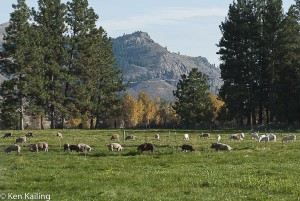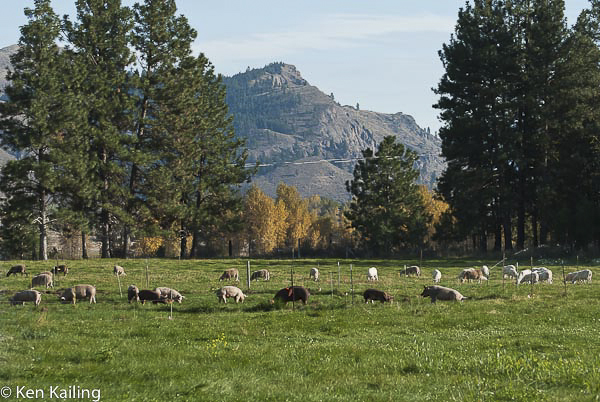
Organic farming is often falsely represented as being unscientific. However, despite the popular assumption that it sprang full born from the delusions of 60s hippies, it has a more extensive, and scientifically respectable, provenance.
Skeptics have often misrepresented a biologically-based agriculture as if it is nothing but the substitution of purchased organic inputs for purchased chemical inputs. Biologically-focused farming bases fertility maintenance on proven cultural practices and locally available waste product:
- Enhancing biodiversity: This includes practices such as growing a wide range of crops, sowing pastures with many different forbs in addition to grasses and legumes, carrying a mixture of livestock, establishing hedgerows for wildlife habitat, and so forth. The more components involved, the more stable the system. The aim of a biologically-based agriculture is to cultivate ease and order rather than battle futilely against disease and disorder.
- Crop rotation: Firmin Bear (a Rutgers chemist in the first half of the 20th century) stated that a well-planned crop rotation is worth 75% of everything else the farmer does.
- Green manures: Deep-rooting legumes not only fix nitrogen, penetrate hardpan and greatly increase soil aeration but also bring up new mineral supplies from the lower depths of the soil.
- Compost making: Of all the support systems for the biological farm, none is more fortuitous than the world’s best soil amendment, compost, which can be made for free on the farm from what grows there.
- Mixed Stocking: Raising animals and crops on the same farm has both symbiotic and practical benefits. The crop residues feed the animals and the animal manures feed the soil.
- Ley Farming: The fertility of land plowed up for row crops after 3 to 4 years in grass/clover pasture is close to that of virgin soil because of the enormous amount of plant fiber added by the perennial plant roots.
- Undersowing: Establishing a green manure crop underneath the growing cash crop can often double organic matter production in the course of the year without any effect on the cash crop.
- Rock Powders: The slow, measured availability to plants of mineral amendments (calcium, phosphorus, potassium, etc.) added to the soil as ground rock powders mimics the availability from natural soil particles.
Read more about sustainable farming in Eliot Coleman’s essay, Organic Agriculture: Deeply Rooted in Science and Ecology.

